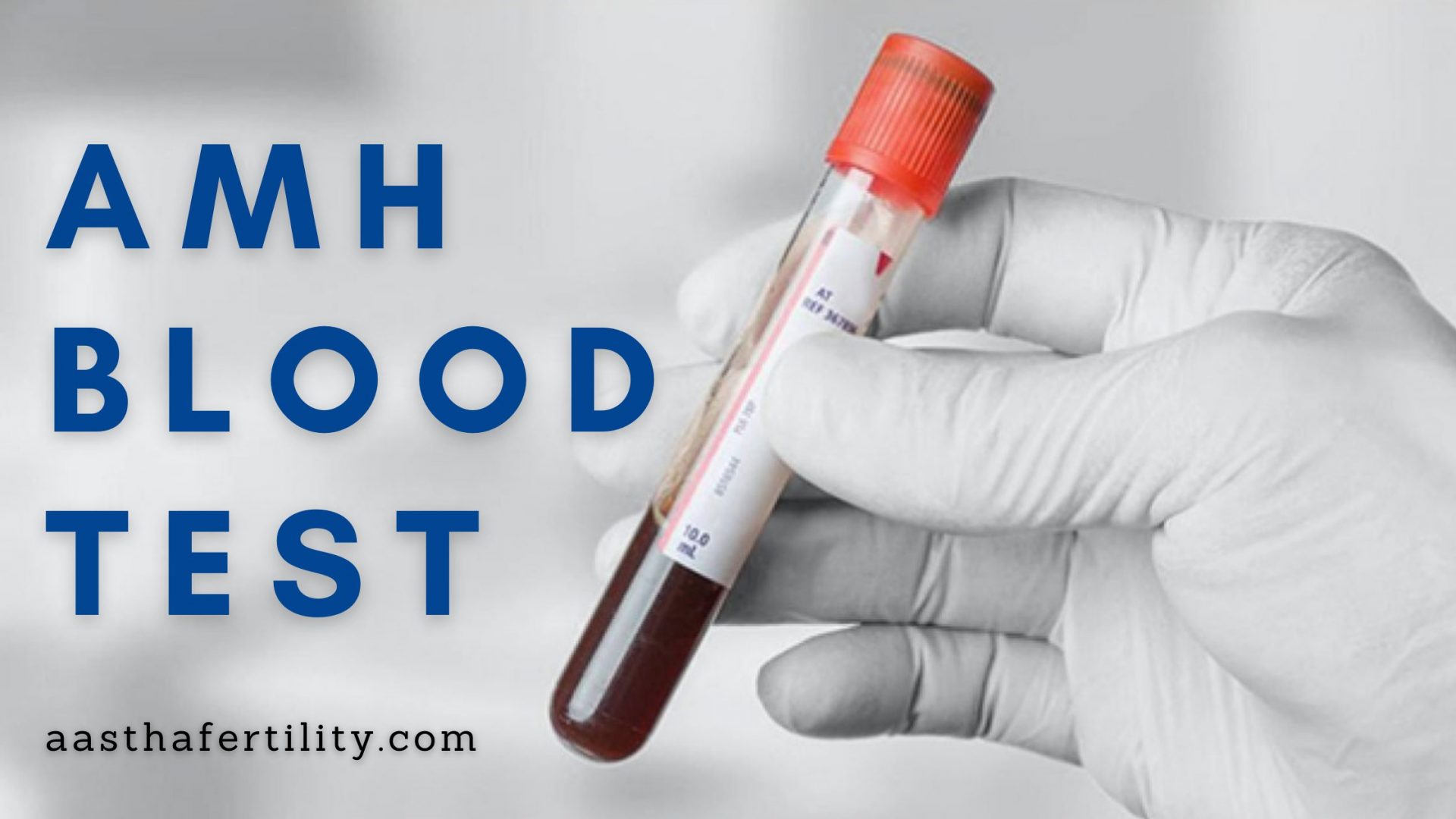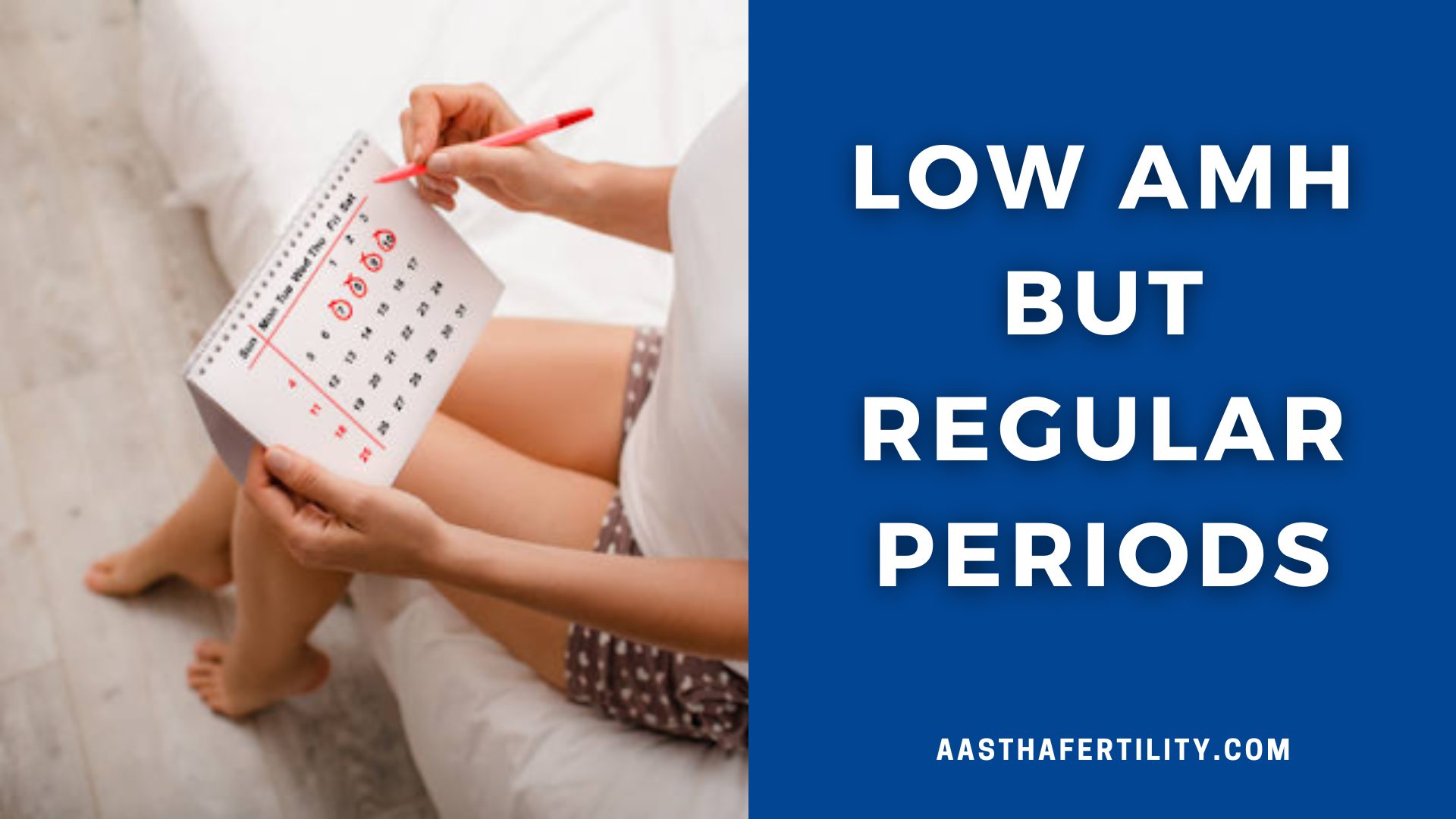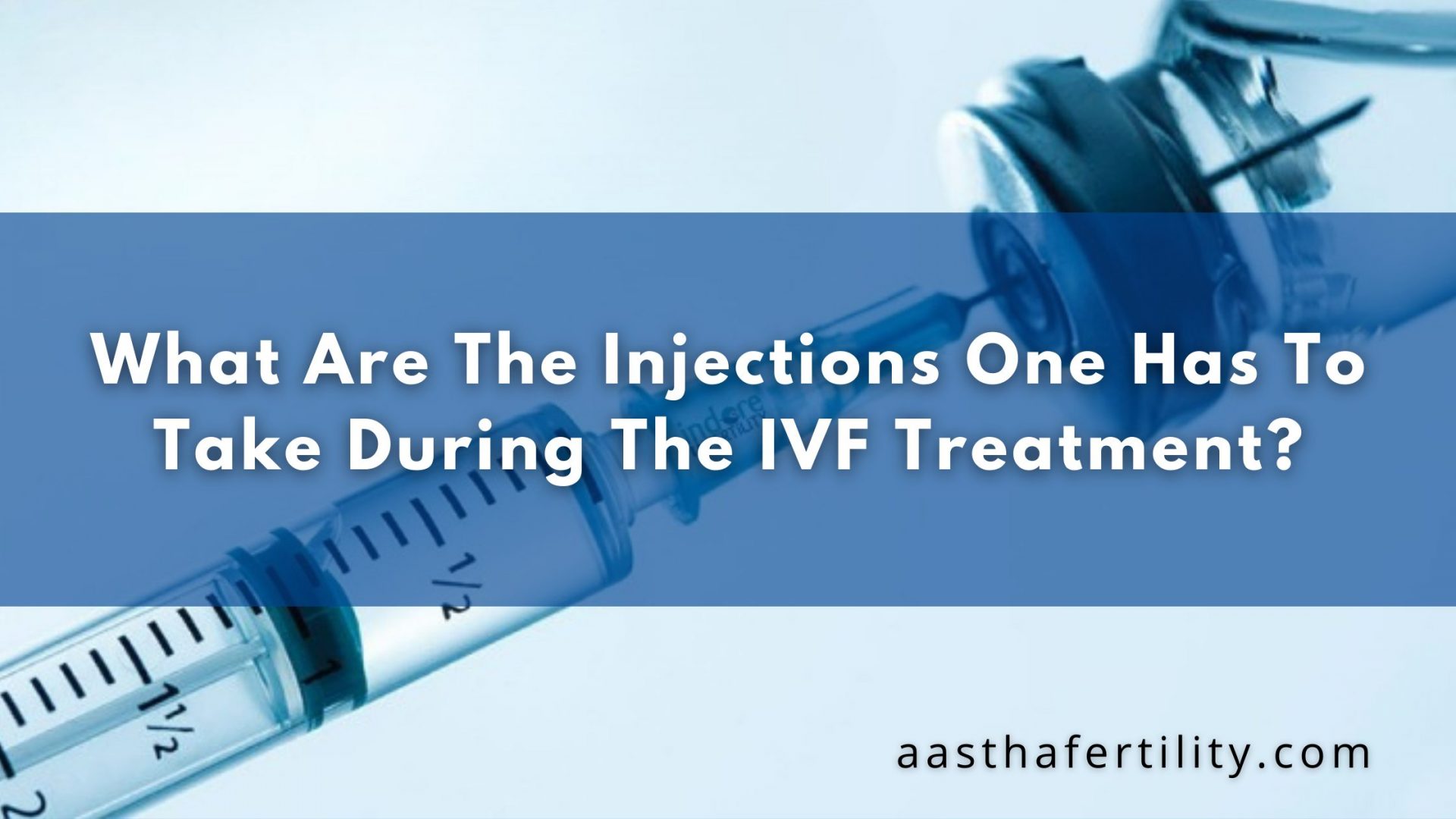Table of Contents
ToggleAMH is an Anti-Mullerian Hormone. It is a glycoprotein hormone secreted by pre-antral follicles and small antral follicles of the ovary, which helps in their growth and differentiation. A woman has about 100,000 oocytes by the time of puberty. When she is in the ’40s, less than 10000 eggs remain. By the time she reaches menopause, there are no eggs left in her body.
Doctors recommend the Anti-Müllerian hormone (AMH) test to test the ovarian reserve of a woman. It depicts the potential of a woman to get pregnant. One can get the AMH tests done anytime during the menstrual cycle. Sometimes doctors may ask to perform other ovarian reserve tests like follicle-stimulating hormone (FSH) on specific days of the period—either day one or day 2 of the menstrual cycle.
The average anti-Mullerian hormone (AMH) level is between 1 and 3.5 nanograms per milliliter (ng/ml).According to NCBI, any level above 2ng/ml is considered a good value, and a level below 1ng/ml is low. Levels less than 0.3ng/ml are considered very low. Levels less than 0.3ng/ml are considered very low. Women with polycystic ovaries have an AMH level greater than 3.5ng/ml. AMH levels decrease with age; younger women usually have AMH levels greater than 3.5 ng/ml, and those more than 40 years old have levels less than one ng/ml. AMH can also be expressed as picomole per liter (pmol/L), where values are multiplied by a factor of 7.
Causes of Low AMH Levels
There can be several causes for a low AMH level. Let us discuss some of them below:
- Age: The primary factor that drives the change in AMH levels. The supply of immature eggs for a woman’s lifetime is available to her at birth. During a woman’s reproductive years, these eggs mature and are used in her ovulation cycles. The ovarian reserve decreases with time, so the AMH level starts dropping as she ages. The number of eggs in the ovarian reserves starts declining when a woman reaches their mid or late 30s. That’s why infertility increases as AMH begins depleting around 35.
- Poor Diet: It is never a good idea to consume processed food and excess fat to maintain a healthy level of AMH. Poor diets cause obesity, leading to various reproductive problems, including low levels of AMH. Also, some studies indicate that vitamin deficiency, especially Vitamin D, directly influences AMH levels and fertility. Consuming a balanced diet is therefore recommended to maintain optimal levels of AMH.
- Past Medical Record: Medical history is another factor that induces low AMH levels apart from age. Medical circumstances can impact the AMH levels irrespective of age. There are instances where some women face low levels of AMH even in their 20s and 30s, while others continue to possess high AMH levels a few years after their 30s.
Adverse medical conditions affecting the reproductive system, such as hormonal disorders, can also lead to a decrease in AMH levels. Also, women with a previous history of ovarian surgery due to conditions like ovarian cysts, endometriosis, ovarian torsion, etc., have a greater chance of having low levels of AMH.
- Mental and emotional health: Stress is the next cause of a low AMH level. It is always beneficial to have a healthy mind and emotional well-being, especially for women who are trying to get pregnant. Continuous mental pressure or chronic stress may cause failure to conceive. De-stressing and maintaining a peaceful mind can also improve the levels of AMH.
Other factors that may cause low levels of AMH are:
- Inherited genetic disorders
- Autoimmune attack on ovaries
- Cancer treatment
- Other Environment causes
Symptoms of low AMH
No specific symptoms immediately signal low AMH levels, but three signs may indicate a woman has low AMH. These include:
- Short menstrual cycles
- Permanent termination of the menstrual cycle
- Irregular menstrual periods
These symptoms may not be associated with AMH levels; some women may have low AMH and none of these symptoms. If you notice any of these signs and are concerned about your ovarian reserve, consult with your OBGYN at your next visit. The best way to know your level is to get an AMH Blood Test done.
Low AMH and Fertility Issues
AMH levels indicator for a woman’s ovarian reserve. AMH levels don’t suggest definite infertility. The decrease in a woman’s ovarian reserve (AMH) with age is one factor that contributes to the decline in fertility associated with aging.
Fewer or no eggs in a woman’s ovarian reserve reduce the chances of getting pregnant.
Women with low levels of Anti-Müllerian hormone may have difficulty conceiving as their eggs accumulate mutations over time. The probability of abnormal fertilization and miscarriage rises when women are over 35 or 40. Therefore, treatment is suggested for women with low AMH levels. However, there have been cases where younger women have not faced hurdles in conceiving despite low AMH levels.
In the blood test, AMH levels signal the potential number of follicles within the ovaries. Yet, AMH levels don’t portray the quality of eggs in a woman.
Treatment with low AMH Levels?
Natural Treatment
A woman can correct her AMH levels naturally by adopting different methods. Practicing Yoga regularly, consuming wheat germ daily, getting acupuncture, and getting fertility massages at prescribed times are some introductory courses of action that can correct your AMH levels naturally.
IVF with Low AMH levels
A woman’s ovarian reserve is a measure of the number of eggs she has remaining in her ovaries. If a woman’s ovarian reserve is low, she has less chance of conceiving naturally, then IVF is a hope of getting pregnant. IVF is an alternative that can help a woman conceive with a limited stock of eggs left in her ovaries, provided the matured egg retrieved in a specific cycle of In Vitro Fertilization (IVF) should be of optimum quality.
The unusually high spiked FSH levels and low AMH levels signal that the ovaries are not growing the optimal quantity and quality eggs. This would mean a poor fertility outcome. But, still with the proper treatment, if a woman’s lifestyle is healthy, she takes a DHEA supplement. With a specific (may be customized) ovarian stimulation protocol, a woman may be able to conceive via IVF treatment successfully.
IVF with Donor egg
If a woman has left with no eggs in the ovarian reserve or has a substantially low quality of eggs, and if the stimulants have failed to retrieve good quality eggs, then she can go for the IVF with a donor egg. In this case, the excellent quality eggs of a stranger (donor) are used to carry the process of IVF and get you pregnant eventually.
Conclusion
Low AMH means a woman may have fewer eggs available, decreasing the chances of getting pregnant. IVF is the best solution to getting pregnant with low AMH levels. Aastha Fertility Care is the most reliable center in India with the most success rate. The doctors and medical staff are very supportive and will guide you throughout your journey.





Leave a comment